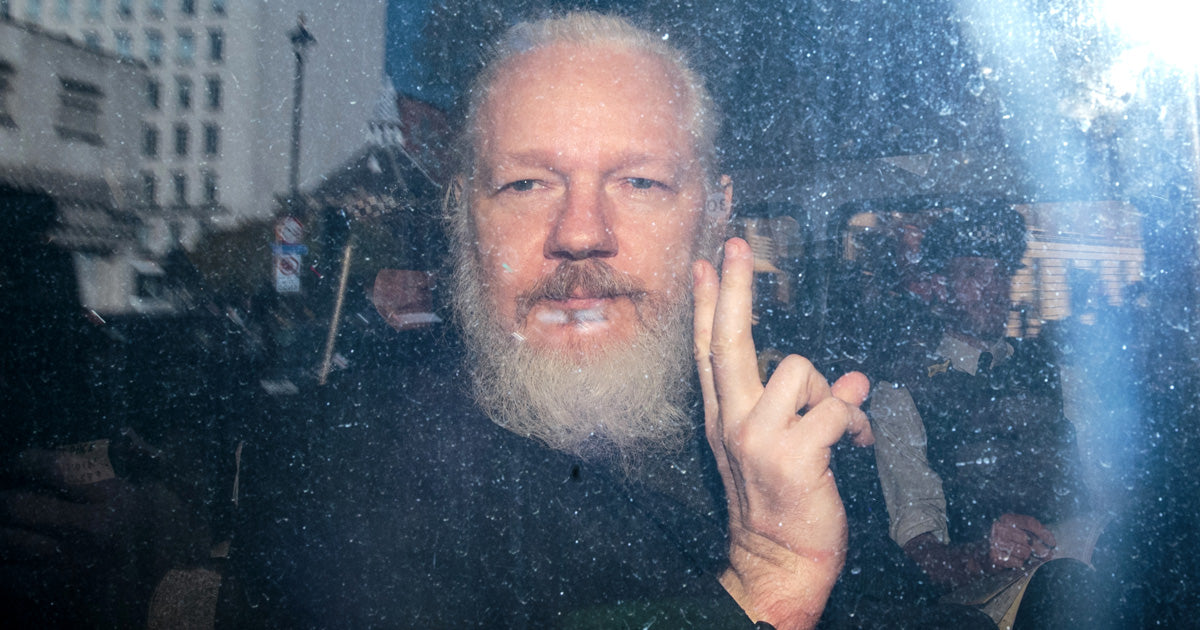This week we fill you in on the Julian Assange trial, a debate over indigenous mythology in science classrooms, a newly discovered galaxy without dark matter, the new James Webb telescope, and Peter Singer auctions an NFT!
I hope you enjoy Christmas and the New Year – catch you in 2022
Keep well,
Suzi
JAMES WEBB TELESCOPE

After three decades in the making, the new James Webb telescope is set to launch next Wednesday!
The new telescope follows in the footsteps of the legendary Hubble – but is far more powerful. While Hubble is capable of observing events that happened in space some 500 million years after the Big Bang, Webb can go back even further to around 200 million years after the event!
Webb will have unprecedented sensitivity – it can see the heat signature of a bumblebee at the distance of the moon!
With Webb, scientists hope to see infant galaxies and learn how they grow over time, and it will also give new information about nearly 5,000 exoplanets.
You can watch the launch live at 10 pm Sydney time next Wednesday. With the launch of Webb, there's never been a better time to delve into the rich history of our cosmos, and who better to learn from than Professor Alan Duffy
DARK-MATTER FREE GALAXY

Astrophysicists from the Netherlands have published a paper documenting their discovery of a strange galaxy without dark matter.
Dark matter is the invisible something that holds galaxies together, so it’s curious that they’ve found a galaxy without it.
This isn’t the first dark-matter free galaxy scientists have found. In fact, in 2018 a dwarf galaxy without dark matter was discovered, which caused a lot of controversy, with some scientists saying it was a new type of galactic growth, and others saying it was simply a misinterpretation of data.
The lead author of this recent paper said “Theory predicts that there must be dark matter… but our observations say there isn’t… The difference between theory and observation is only getting bigger.”
Are you confused? Got a lot of questions? Yeah, us too... Luckily we’re bringing one of the world’s greatest theoretical physicists, Brian Greene, to Australia and New Zealand in 2022, so you’ll be able to ask him any of your burning questions about dark matter!
ASSANGE WOES

We’re saddened by the news that Julian Assange, one of the bravest people we’ve worked with at Think Inc., is facing extradition to the US after a decision last week by the UK High Court. In the US, Assange faces a prison sentence of 175 years.
Assange has already spent the past two years in a London prison, after almost a decade hiding out at the Ecuadorian embassy in the UK.
On Monday, Anthony Albanese, the Australian Opposition Leader, said the ongoing incarceration of Mr Assange needed to end, but he stopped short of demanding the government make a personal appeal to the US to drop the charges.
And to the surprise of many, on Tuesday the Deputy Prime Minister, Barnaby Joyce, wrote an article for the Sydney Morning Herald in which he urged for Assange to be either tried in the UK, or returned to Australia.
Assange's lawyers say they will appeal the high court ruling, and let’s hope they’re successful, or else this would be a terrible day for anyone who cares about truth and journalistic freedom.
MYTHOLOGY IN SCIENCE CLASSROOMS

Onto another controversial topic, whether mythology and science are compatible in the classroom.
Recently across the Tasman, an eminent professor, Garth Cooper, was investigated by the Royal Society of New Zealand after he signed a letter that criticised a government proposal to give equal weight to Maori mythology and science in the classroom.
The proposal would mean that creation stories, such as the Maori belief that the world was created by sky gods, would be presented as equally valid as the theories of Newton and Darwin.
Professor Cooper, himself a descendant of a Maori tribe, said one of his concerns was that by telling students that science was a colonising force, the education system would be turning students, especially Maori students, away from studying STEM.
What do you think?
Surely there’s a way to teach children about the importance of indigenous knowledge and culture, while also teaching about empiricism and rationality. And surely we should be able to debate the issue without risking our careers.
PETER SINGER'S NFTS

Peter Singer recently dipped his toes into the booming NFT and crypto world, which you can hear him talk about in a panel discussion called ‘What Good is Crypto?’, hosted by GiveDirectly and The Life You Can Save.
In honour of the 50th anniversary of his seminal paper “Famine, Affluence and Morality”, Peter is auctioning four NFTs to raise money for The Life You Can Save.
The first NFT consisted of his 1971 paper and a 30-minute zoom call. It was bought by angel investor Mick Hagen – we wonder what they will talk about on their call.
The other NFTs, yet to be auctioned, will be a 15-minute Zoom conversation with Peter, and an NFT of a signed photograph of him.
If you want to chat to Peter Singer AND give money to The Life You Can Save, all without buying an NFT, you can do that easily by buying a Meet and Greet ticket for our tour with Peter in March and April 2022.
PHOTO OF THE WEEK

We apologise if you're halfway through a meal when you see this.
What you're looking at are vulture bees feeding on rotting chicken. Found in the jungles of Central and South America, scientists were confused by their desire for rotting flesh.
Now, they think they have cracked the riddle by looking into the bees’ guts.
Vulture bees have acid-producing gut bacteria – the same types that protect carrion feeders, such as vultures and hyenas, from getting sick on rotting meat.


Leave a comment
This site is protected by hCaptcha and the hCaptcha Privacy Policy and Terms of Service apply.